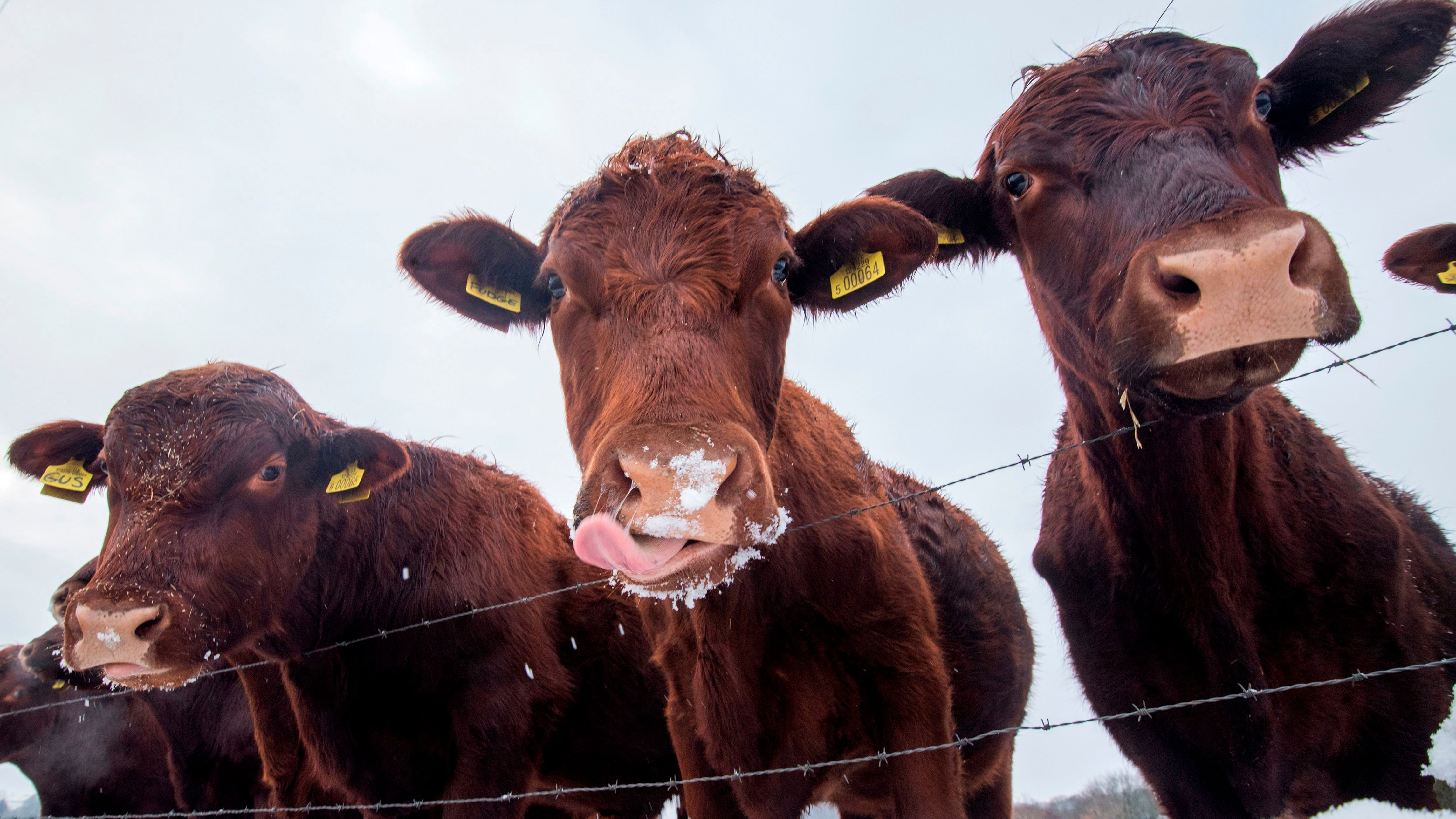USDA Scraps Rules Requiring Organic Livestock Have Room To Stand Up, Stretch
When you see the word organic on a meat label or egg carton, you might picture placid cows in a bright, green field or contented chickens pecking energetically at the grass. But those types of conditions aren't required by law, and the AP reports the U.S. Department of Agriculture on Monday withdrew new laws that would have mandated stricter animal welfare standards for organic meat.
The rules had been in the works for decades, but the current administration scrapped plans to require organic farmers provide livestock enough room to lie down, turn around, stand, and fully stretch. According to the AP, the regulations would have also "prohibited removal of chicken beaks and cutting cattle tails and required improved living conditions including fresh air, proper ventilation, and direct sunlight." Now, those requirements are no longer set to take effect.
The Trump administration repeatedly dragged its feet on implementing the proposed organic standards before ditching them altogether this week. The USDA contends the Organic Livestock and Poultry Practices rules would have overstepped the agency's authority. But animal welfare groups and organic farmers say the current administration's reversal of decades of work proves that conventional agriculture lobbyists influenced the decision.
News that organic livestock may still be raised in pens and low-ventilation buildings may shock some consumers. Advocates for the now-trashed standards say they would have ensured humane treatment, and many also contend that animals allowed to graze and free-range eat a more varied diet and therefor produce more healthful meat or eggs.
Francis Thicke, an organic dairy and crop farmer in Iowa, tells the AP that a group of organic farmers plan to create their own seal, The Real Organic Project, whose animal-welfare requirements would be stricter than those set by the federal government.
